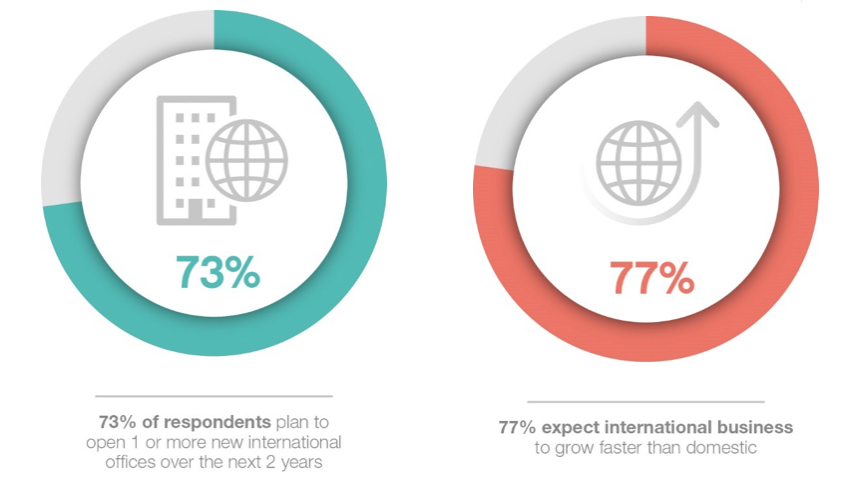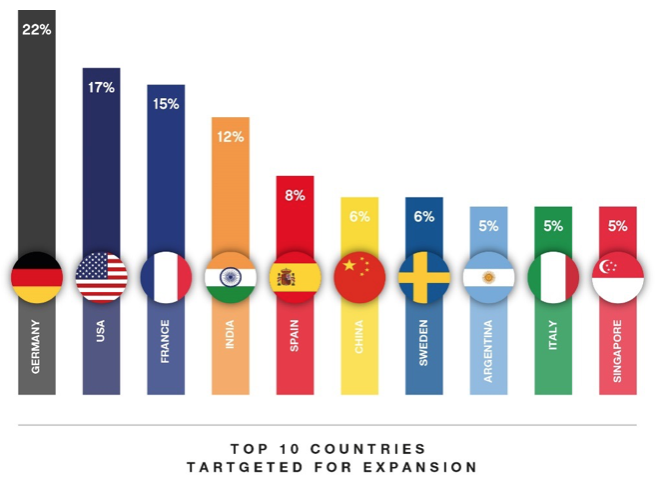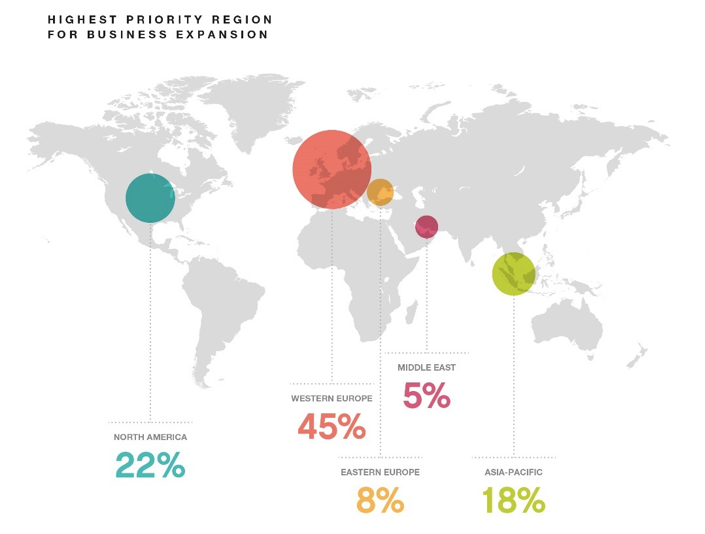In the News
‘Brexpansion’ Under Threat? Micro-Multinational Growth Could Be Jeopardised by EU Uncertainty
Natterbox Team

- Research conducted by Sussex Innovation indicates that Western Europe is still the key market for UK SMEs expanding internationally
- Micro-multinationals understood to drive innovation and economic growth
- Customer acquisition, technology infrastructure and recruitment cited as main challenges to growing businesses abroad
LONDON, 18th August 2016: Research into the emerging trend for ‘micro-multinationals’ – SMEs taking advantage of new technological advances in order to expand internationally early in their life cycle – has revealed that Western Europe is the preferred market for British companies taking their first steps overseas. The findings raise further questions about the potential negative impact of the EU referendum result on the UK economy.
The research was conducted by business incubation network Sussex Innovation on behalf of its member company Natterbox, a global cloud telephony provider. Researchers collected survey responses from more than 100 UK-based micro-multinationals, as well as conducting in-depth interviews with senior staff members to uncover more detailed insights. The conclusions have been published in a report, UK Micro-Multinationals: Business Beyond Borders – Why SMEs are the engine for the UK PLC global expansion: https://natterbox.com/micro-multinationals-white-paper/
Recent data suggests that in the current economic climate, UK SMEs that are solely reliant on domestic trade are not setting themselves up for success. Nearly three in five (58.2%) of small businesses report that the domestic economy is a potential barrier to achieving their growth aspirations this quarter, according to figures from the Federation of Small Business.
More than three-quarters (77%) of respondents to the micro-multinational survey expected international business to grow faster than domestic, with Germany and France ranked in the top three nations targeted for expansion.



While Western Europe is still currently the UK’s biggest trading partner, in the immediate aftermath of the EU referendum the future remains uncertain.Should Brexit prove to inhibit UK micro-multinationals from establishing a trading base in their traditional strongholds, many may be discouraged from international growth at the first hurdle.
The USA also remains a popular destination for UK businesses – probably due to the perceived lack of language barriers – making North America the second most targeted region overall. Asia-Pacific was the next most popular region for multinational expansion plans, showing China, Singapore and Indonesia as promising emerging markets. Depending on how global trade agreements evolve in the wake of Brexit, we may begin to see the British SME country developing stronger ties with these nations in particular.
The changing trading relationship with the EU and the negotiation of trade agreements for access to non-EU markets will impact competitiveness and bureaucracy but for the moment, there is no clarity on how much. The prevailing feeling from the business community is caution in the face of this uncertainty.
Neil Hammerton, CEO and co-founder of Natterbox, who commissioned the report, said: “One of the themes that emerged most clearly from the insight interviews was that you can no longer afford to not think globally as you look to scale a business. For many young companies, Europe is a relatively comfortable first step into that environment, and it would be a shame if the referendum result discourages the success stories of tomorrow from reaching their full potential.
“The impact micro-multinationals can have on our economy is staggering – SMEs account for about 90% of businesses, with other research indicating that 83% of them cite overseas expansion as their top priority.”
How technology has enabled micro-multinationals
The research showed that this focus on expansion brings with it a high dependency on infrastructure technology. The rapid development of these technologies in recent years has made it possible for smaller businesses to achieve global coverage with a reduced physical – and in some cases entirely virtual – presence. Indeed, getting the right technology infrastructure in place was the second biggest imperative for the micro-multinationals surveyed, behind only customer acquisition in terms of importance.
The research showed that email, customer relationship management (CRM) tools and telephony were the three most significant technologies to these businesses, ahead of more fashionable technological advancements such as social media. Advances in telephony services – using the cloud and integrating with CRM – have made it possible for small businesses to ensure a consistent customer experience across a wide territory at much lower cost.
“Telephony is still considered vital because of the personal experience it delivers to complement other communications channels,” said Hammerton. “Is it surprising that micro-multinationals place so much emphasis on using the phone? Not when you consider that they need to build trusted relationships across so many locations.”
Sussex Innovation will host a roundtable debate with representatives from micro-multinational business and the Department for International Trade (formerly UKTI), featuring discussion of the Business Beyond Borders report, on Wednesday 24th August. Please RSVP via Eventbrite if you would like to attend in person or remotely.
